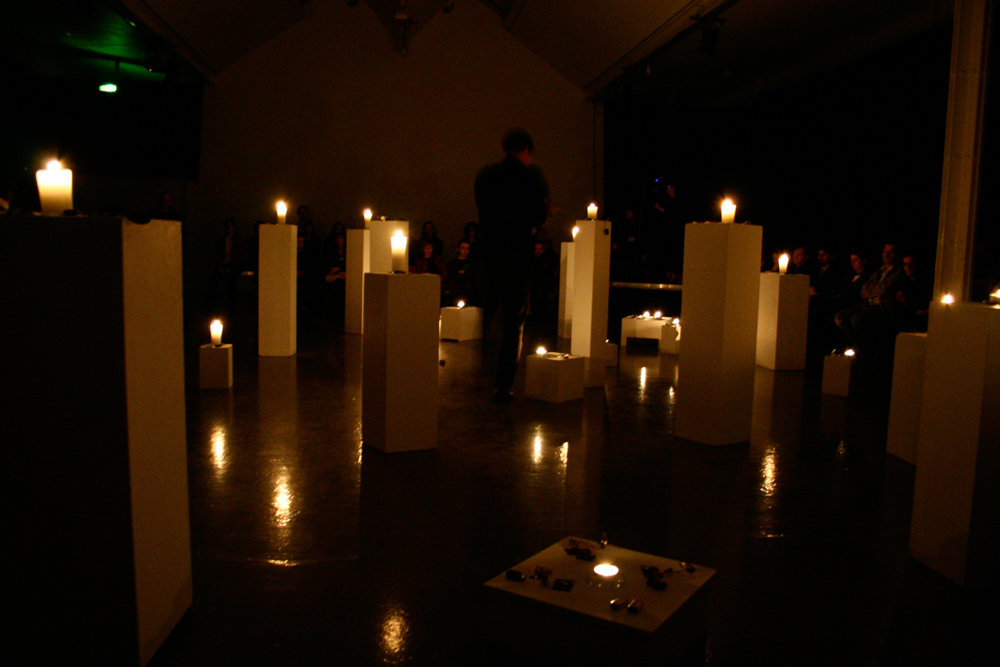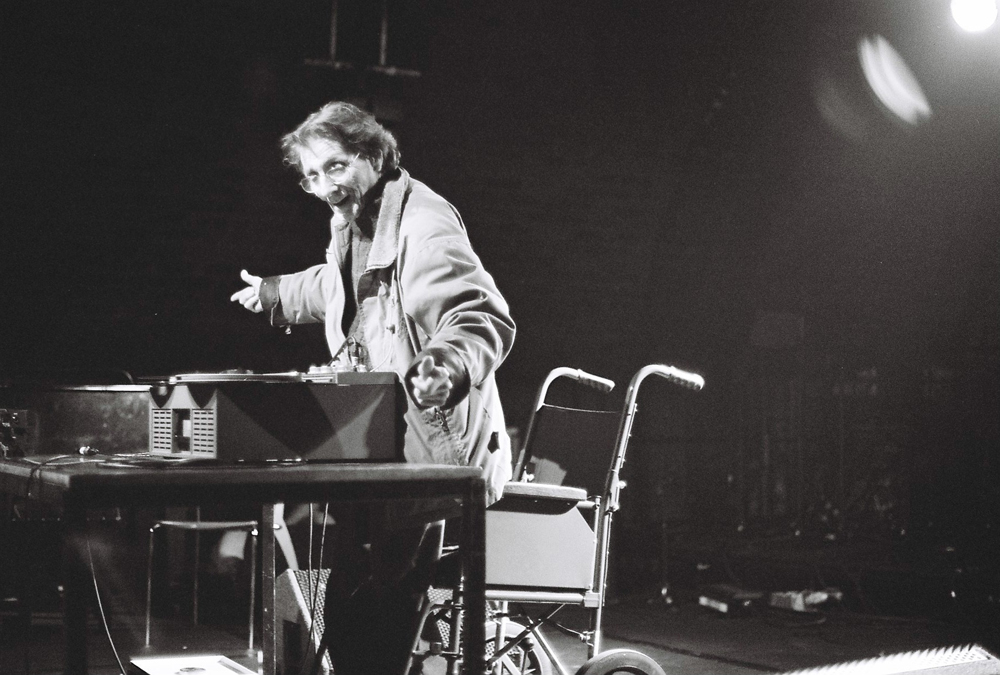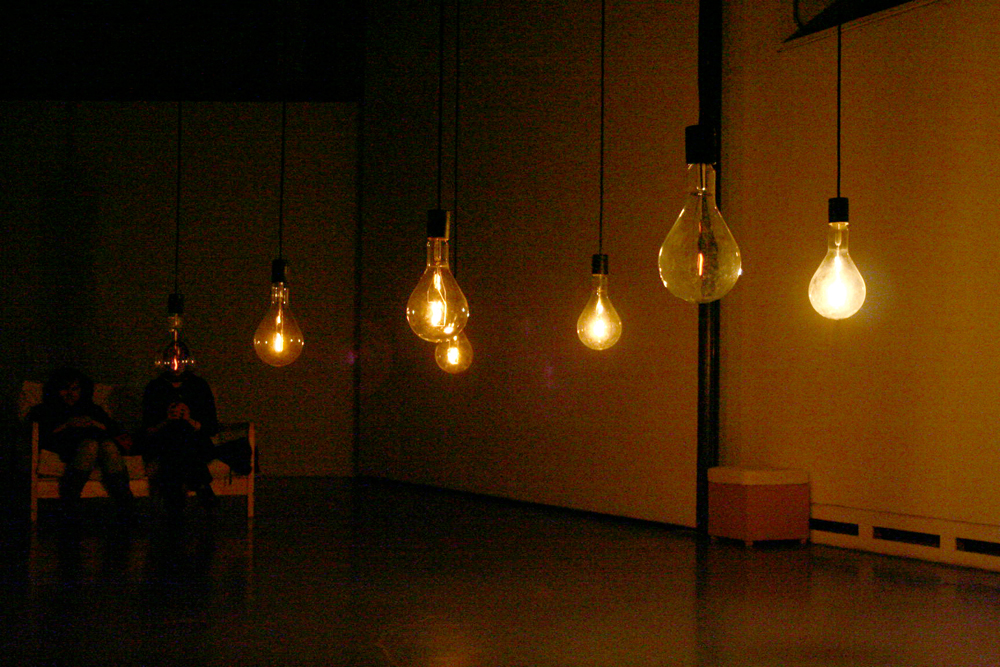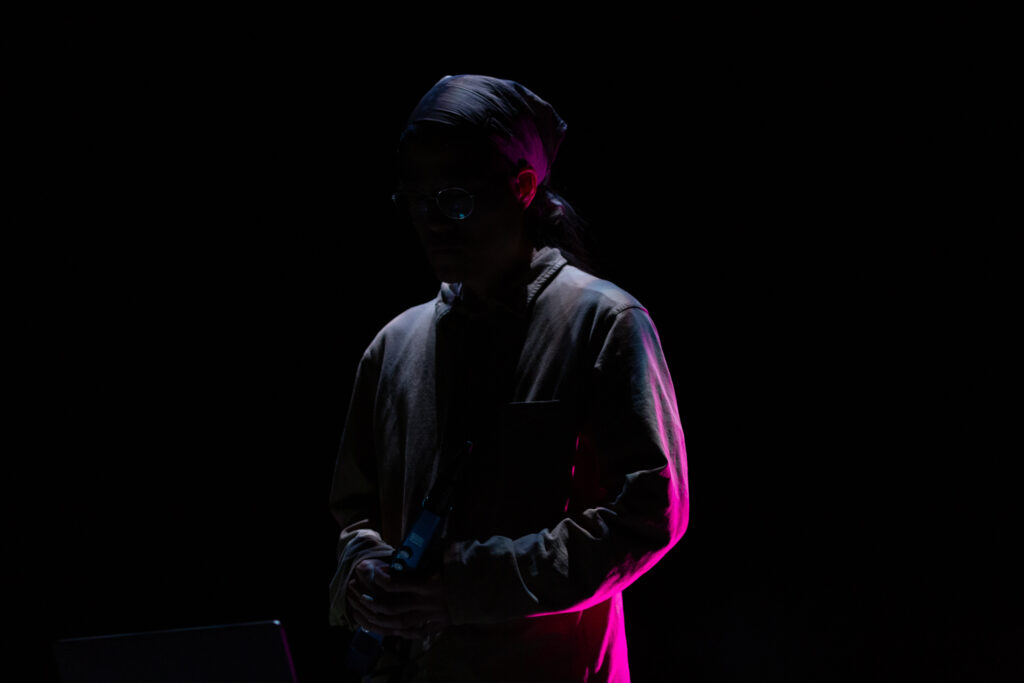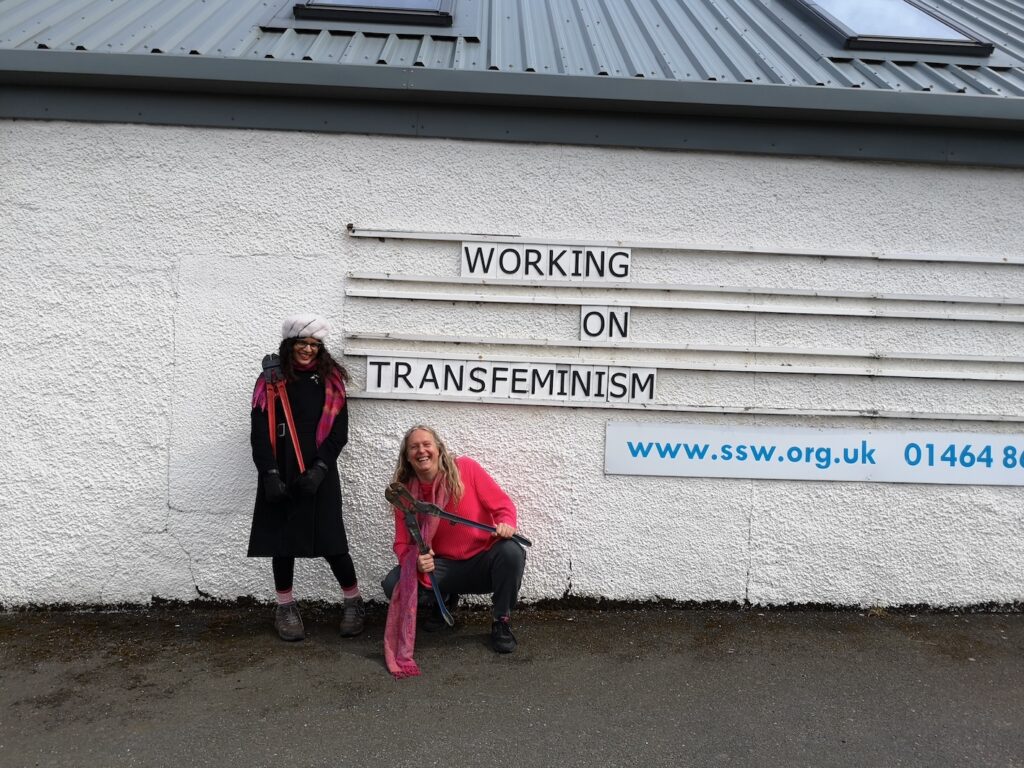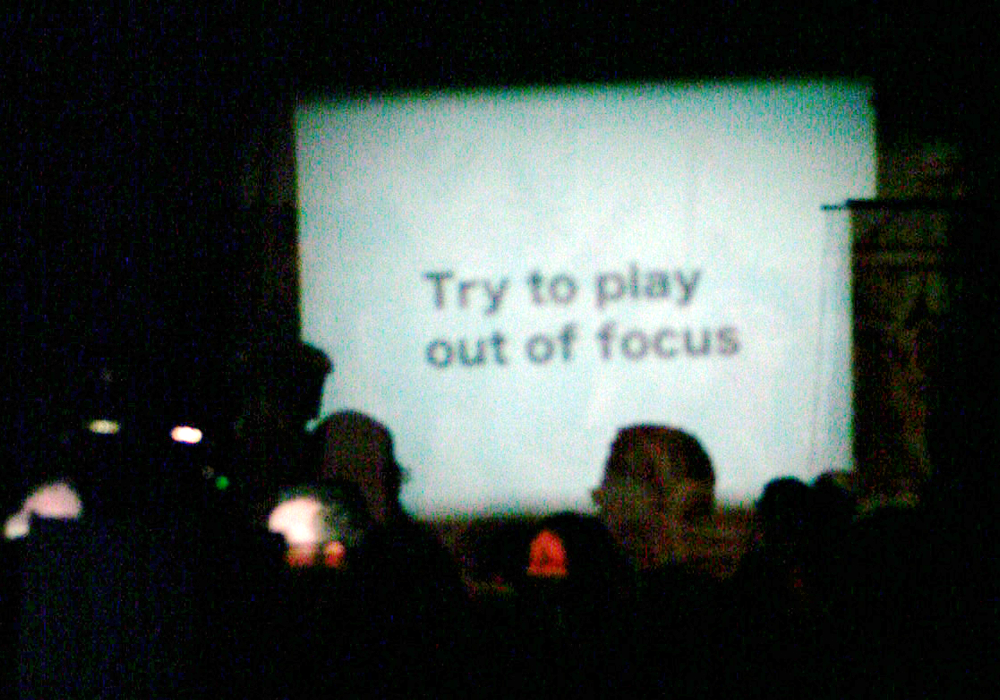
Andrew Lampert with Steve Beresford, Okkyung Lee & Mark Saunders
Andrew Lampert Okkyung Lee Steve Beresford
A performance for projectionist, musicians and audience, which plays with references to Oscar Levant and Gershwin: apparently a series of small doses of chaos.




